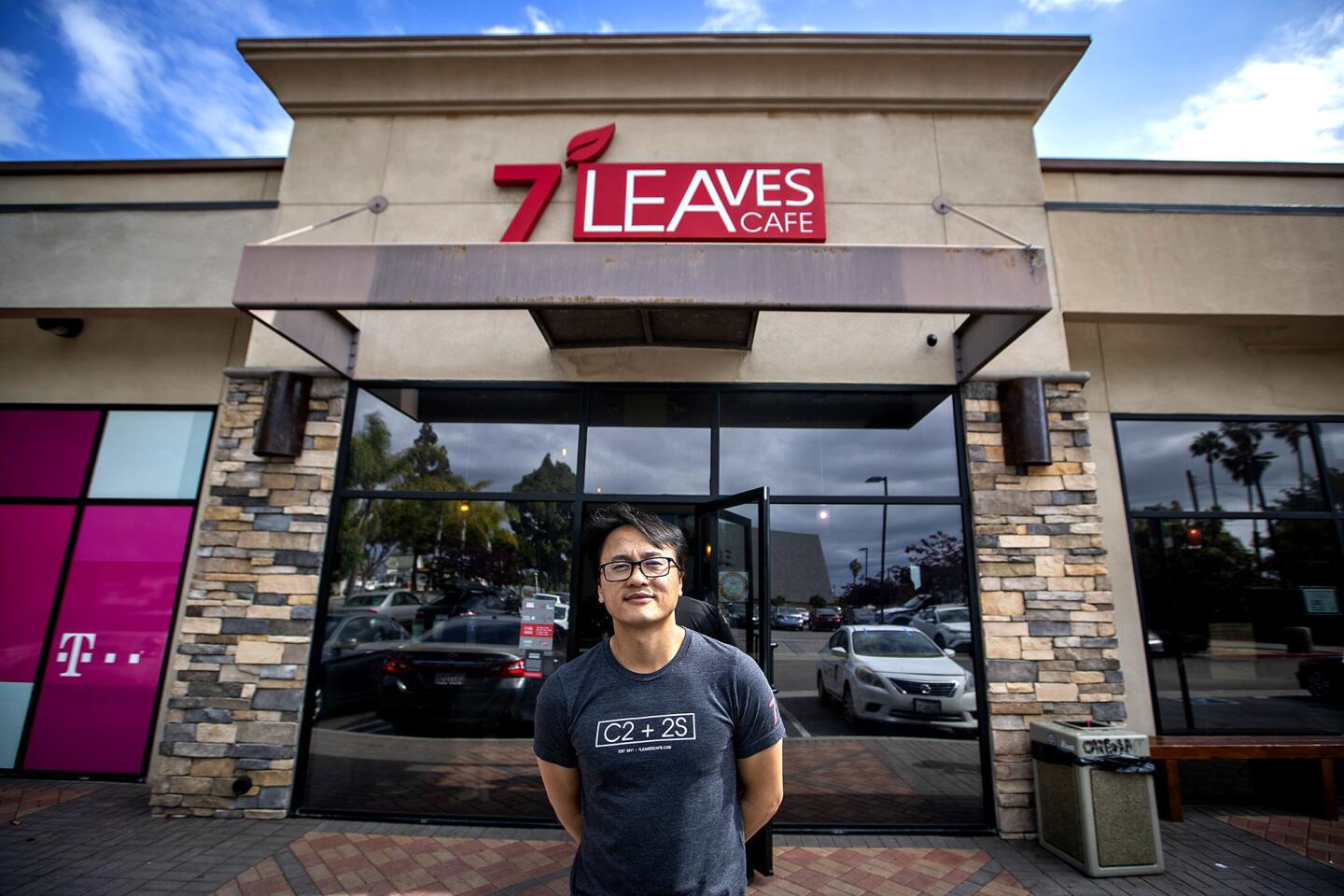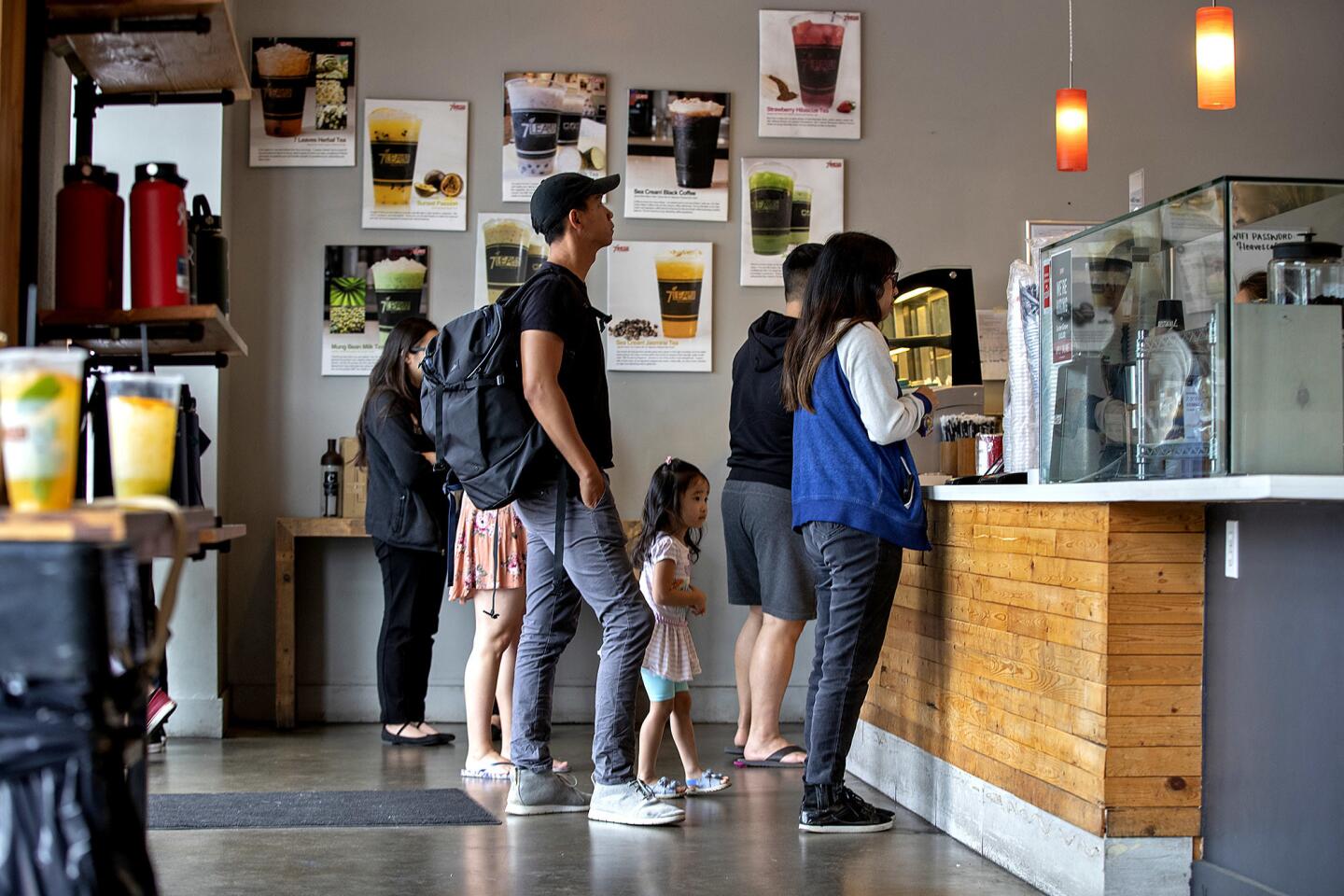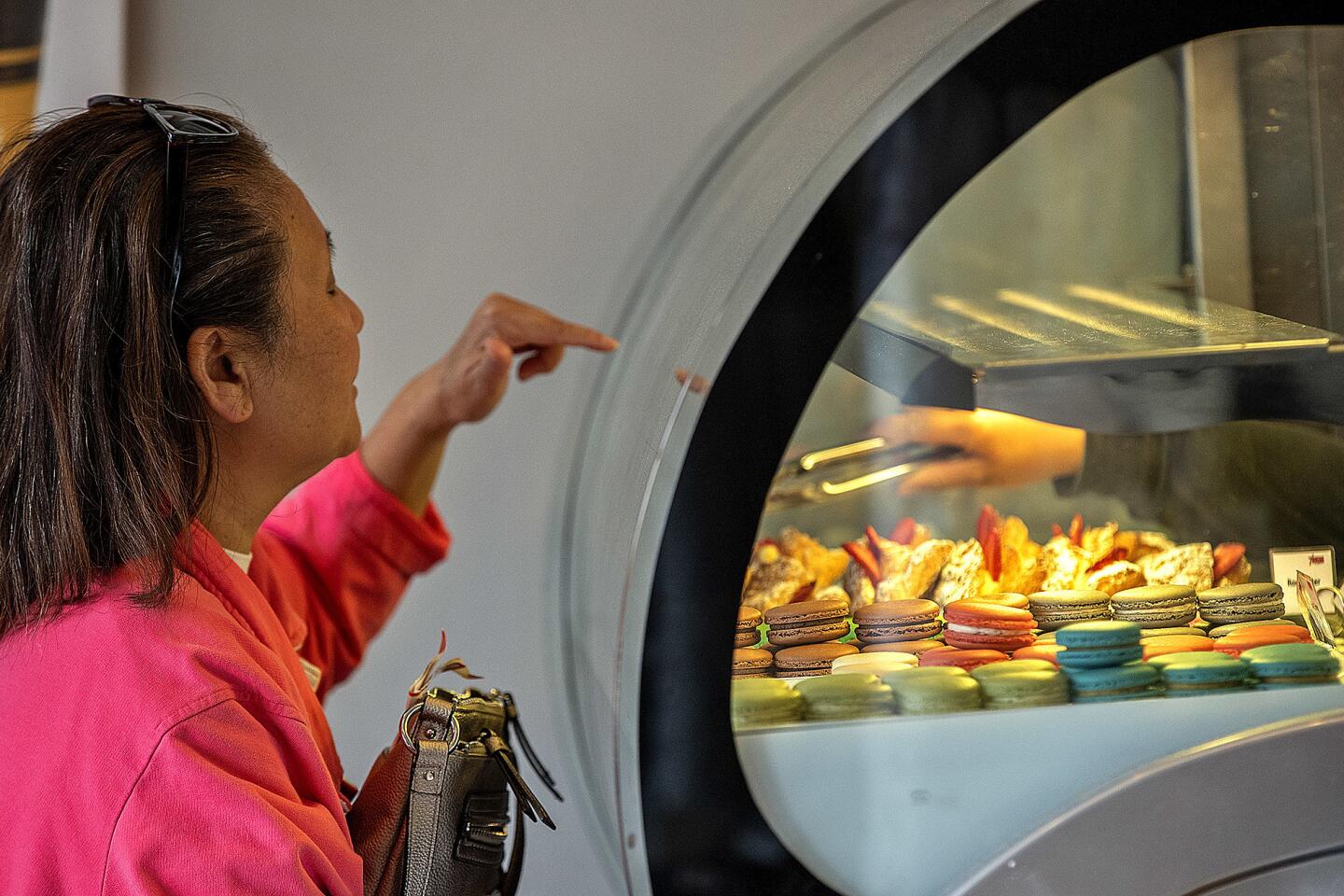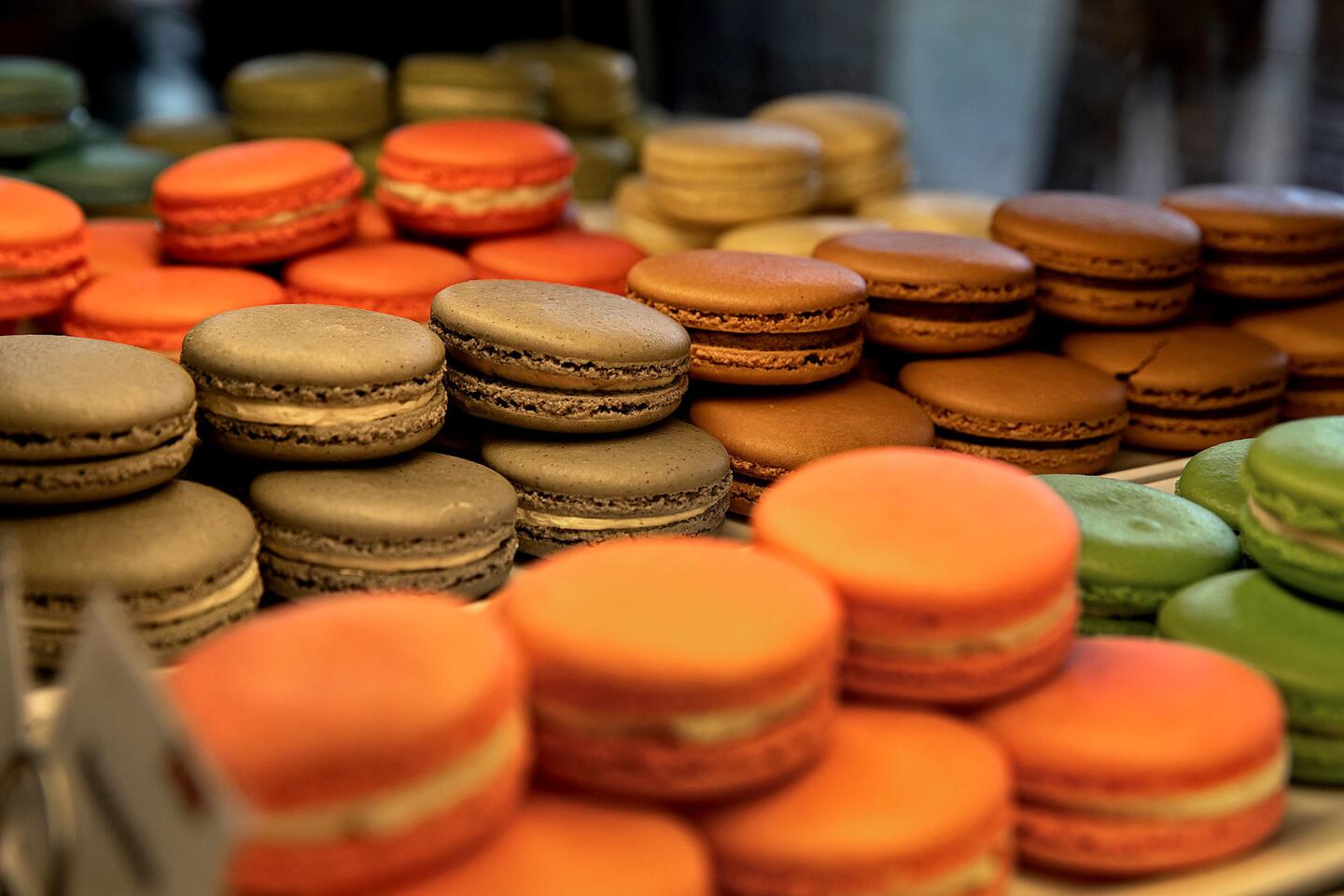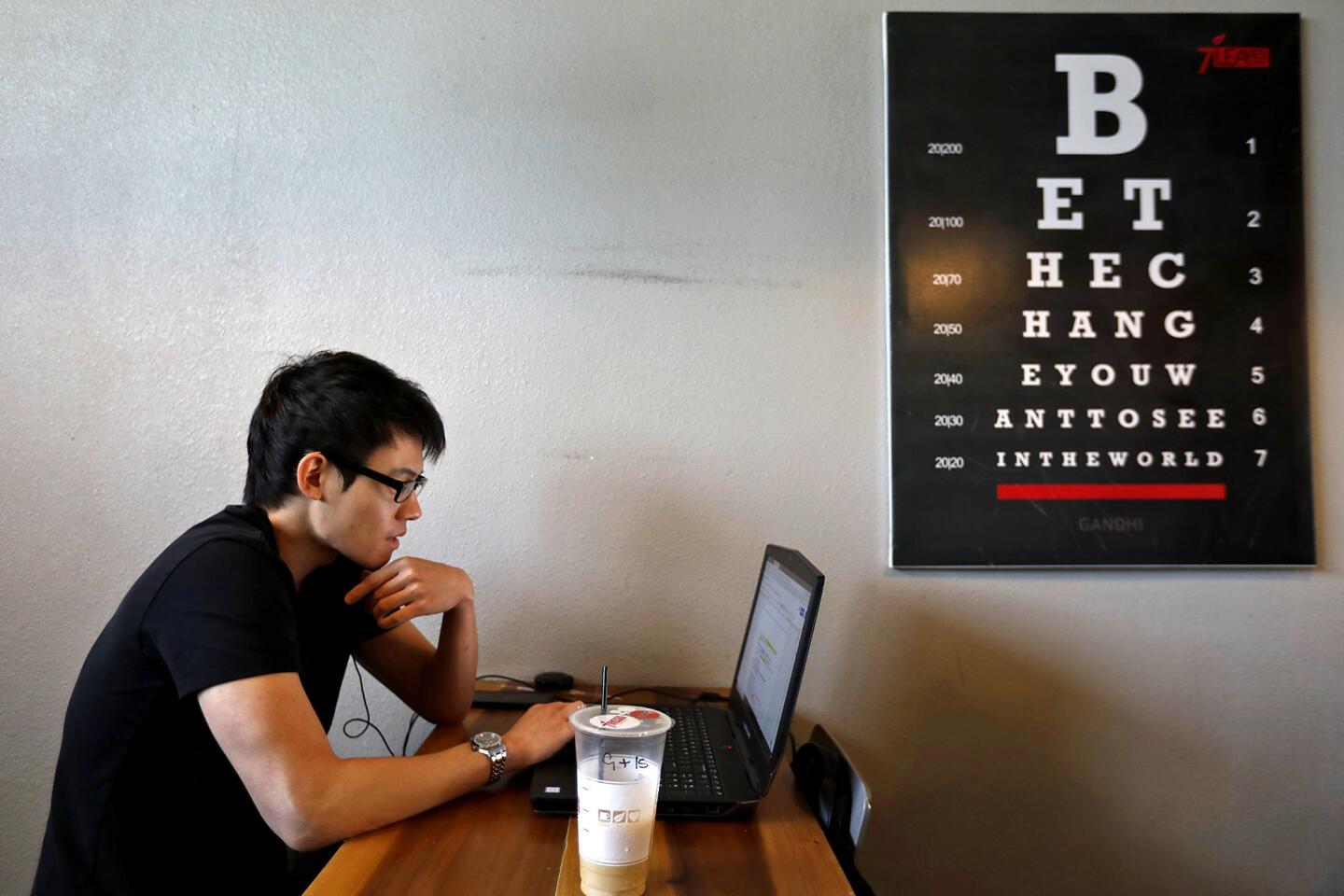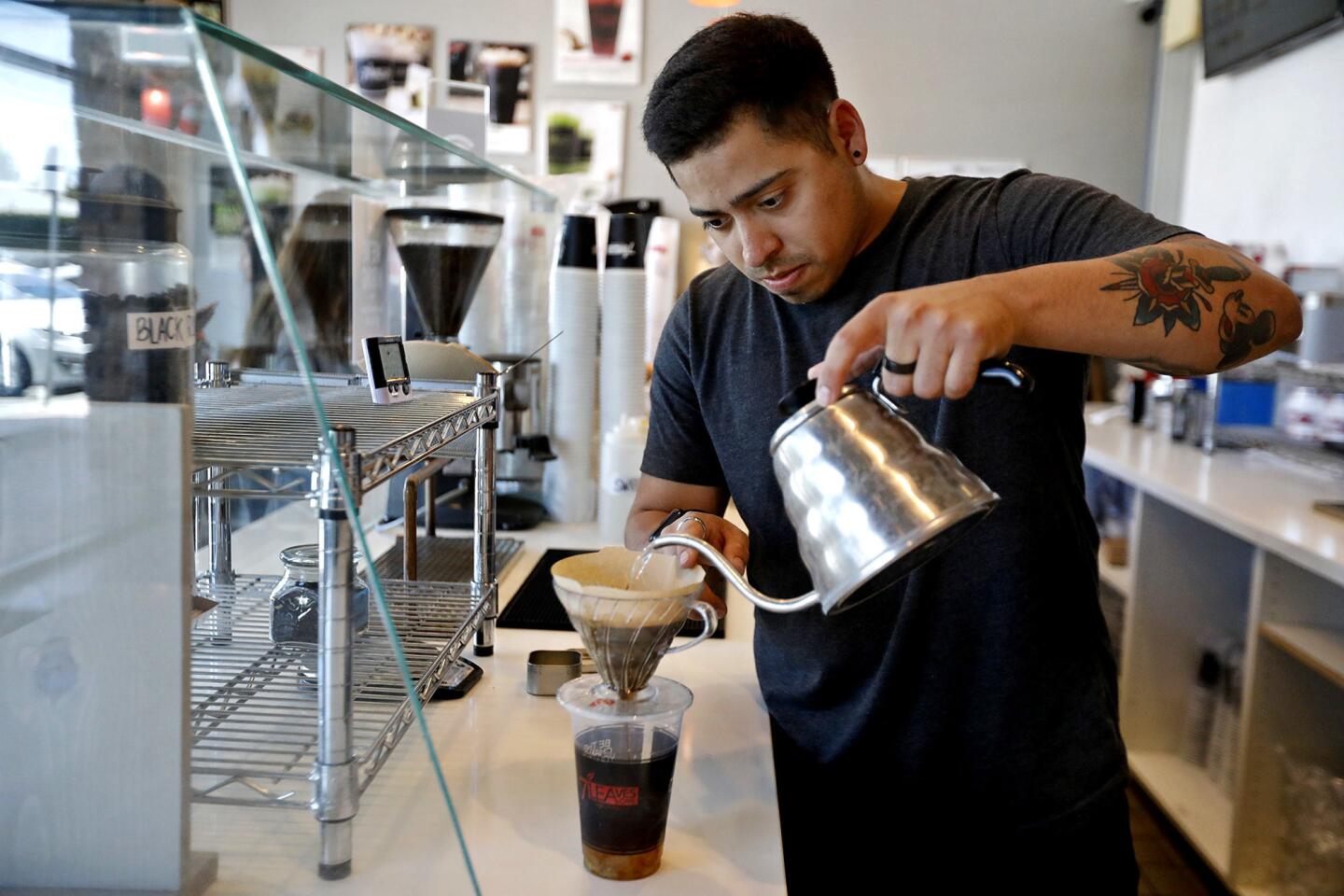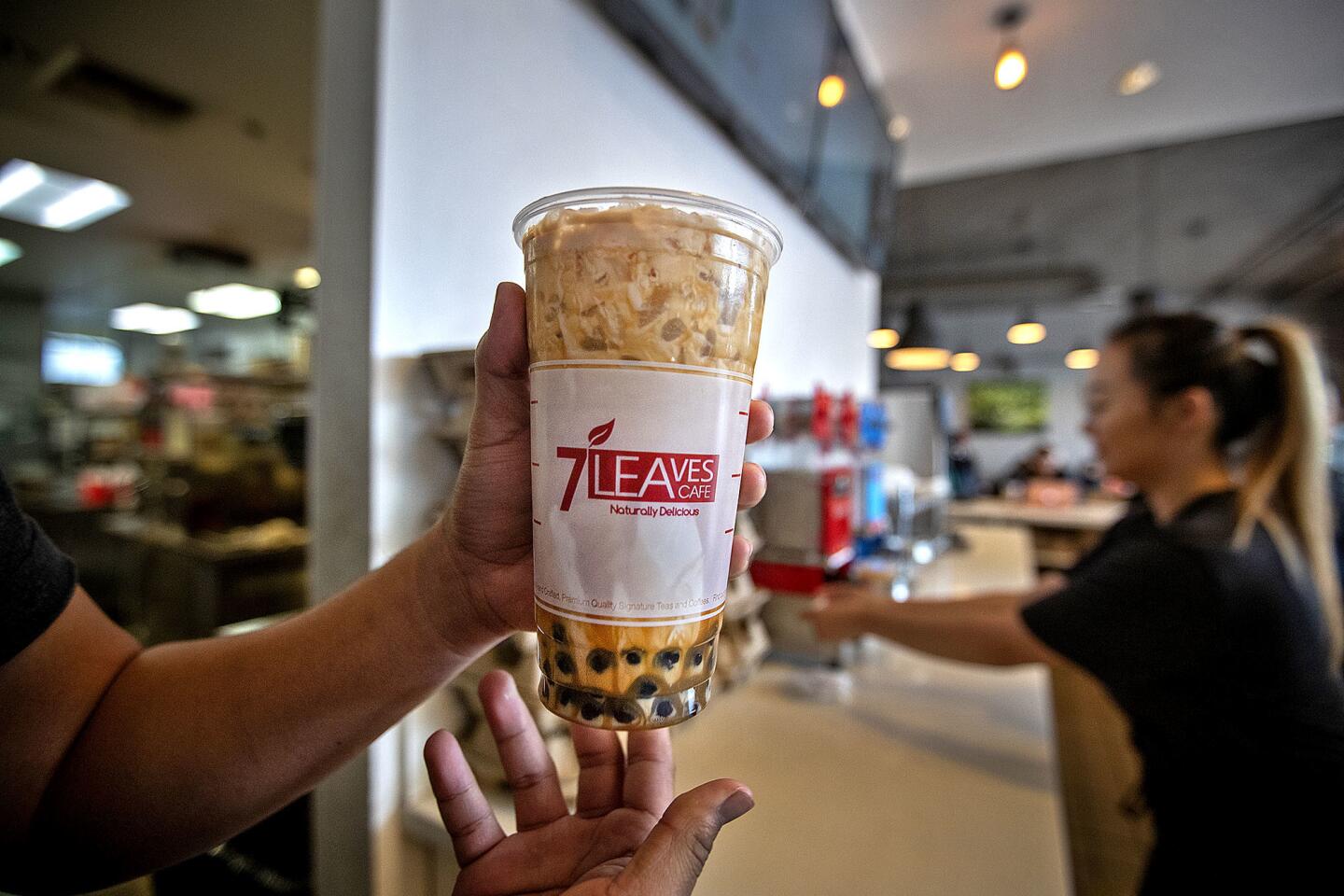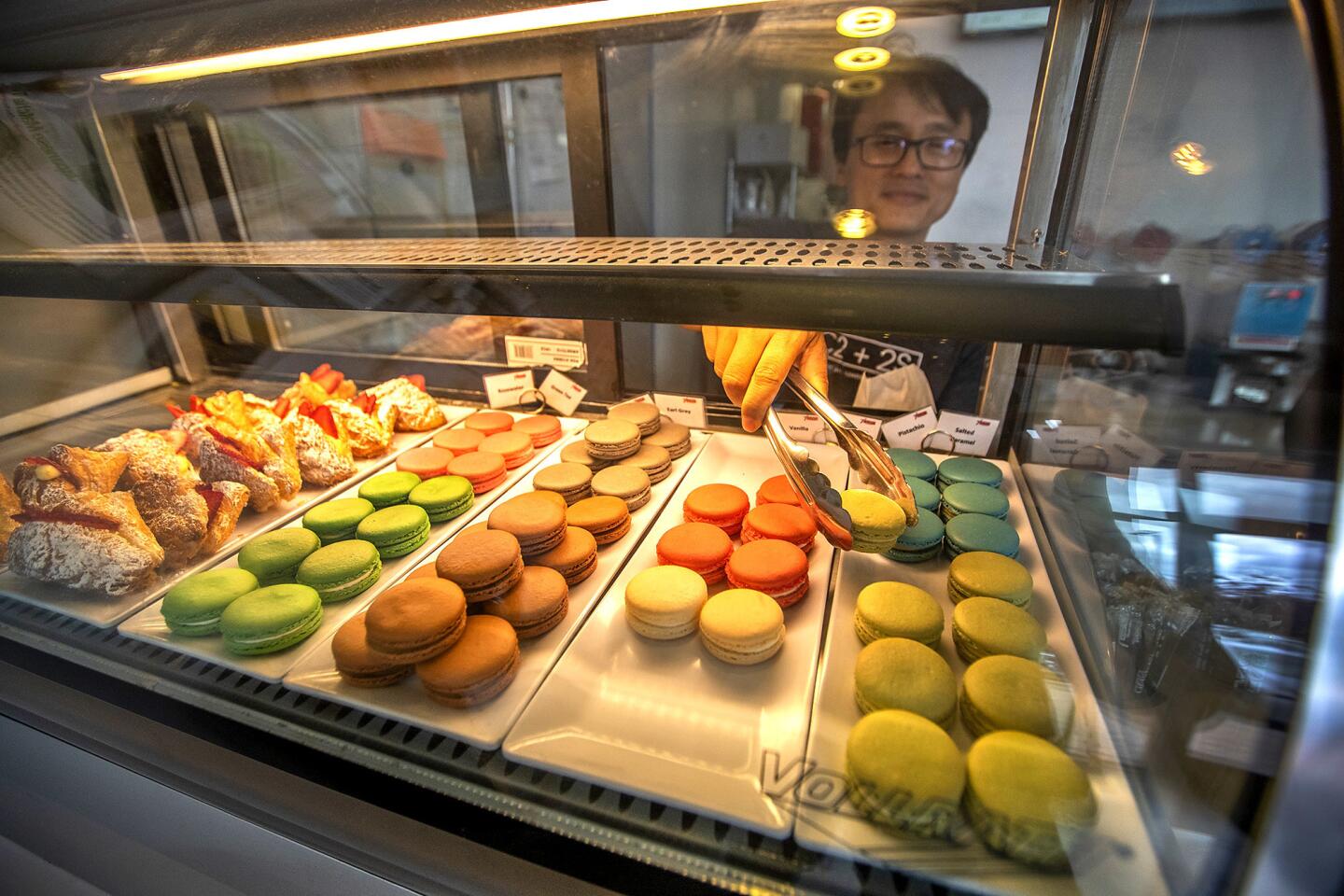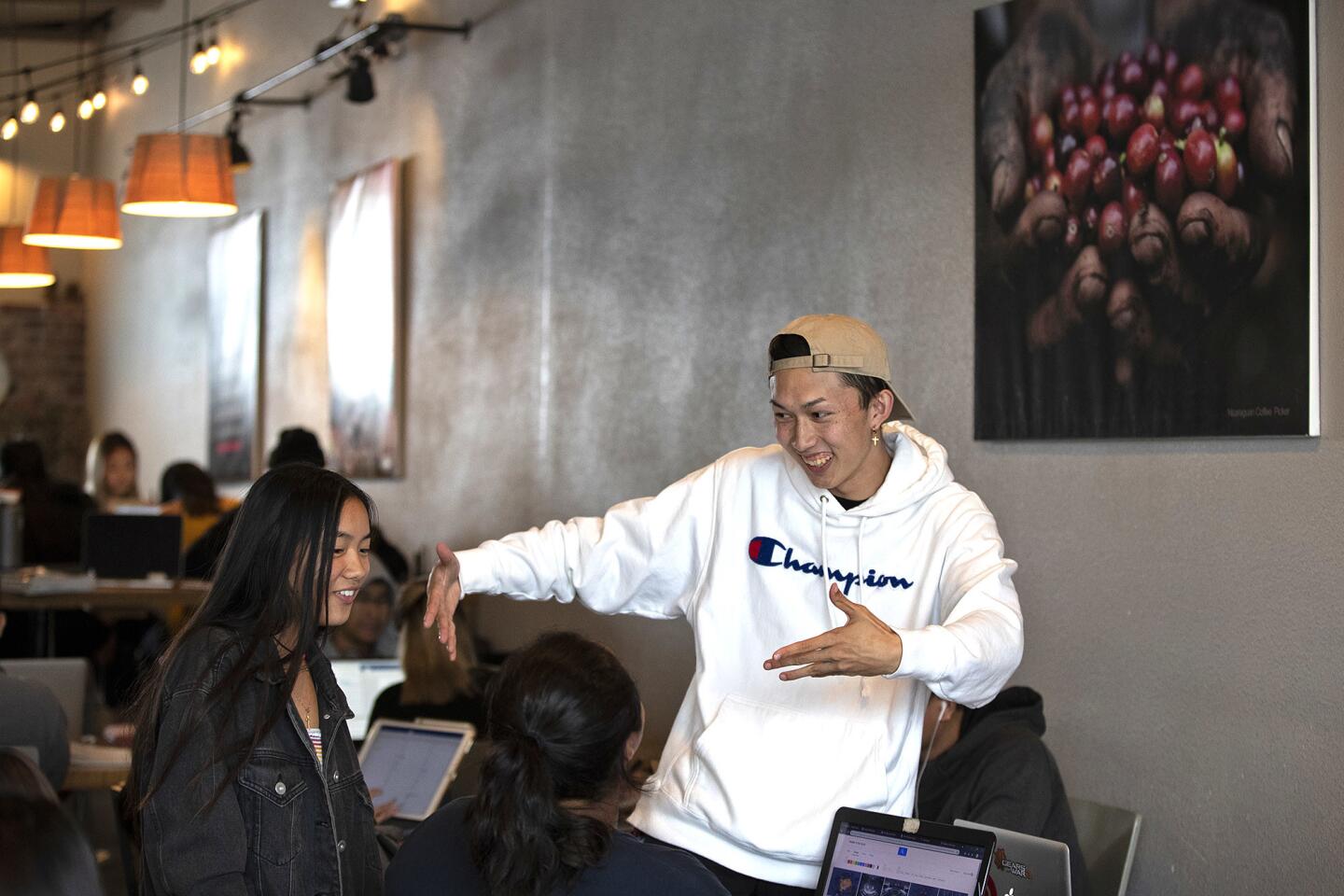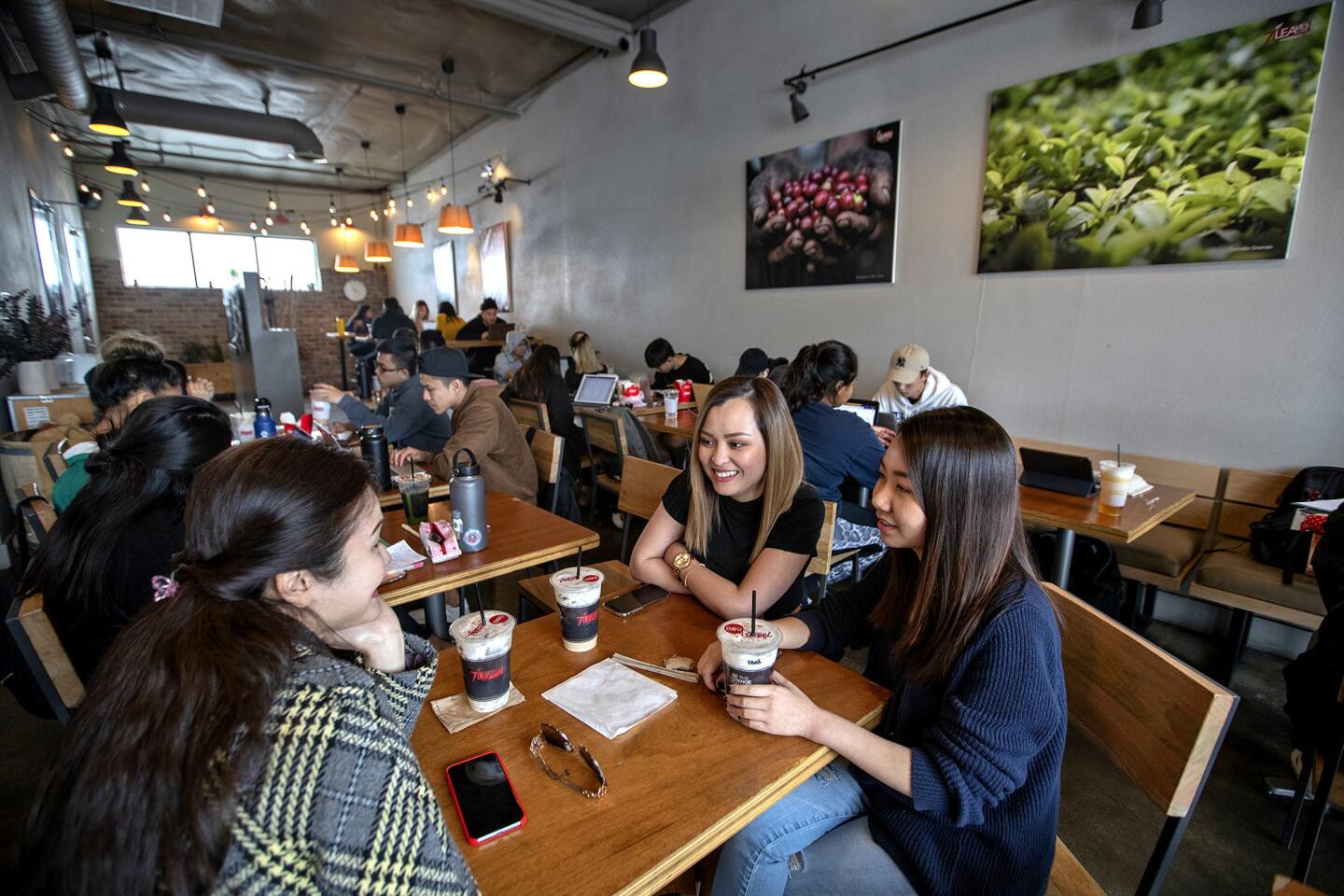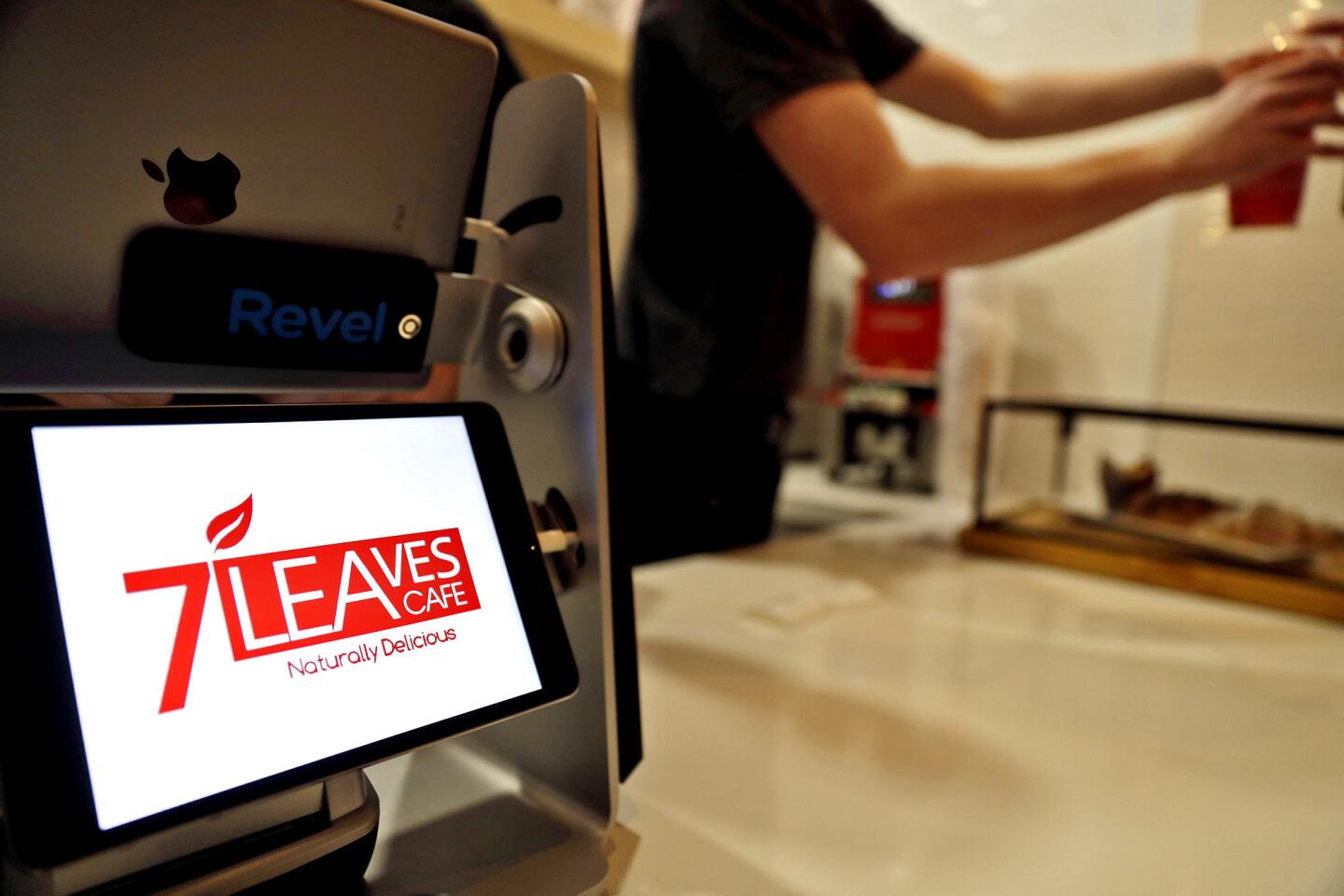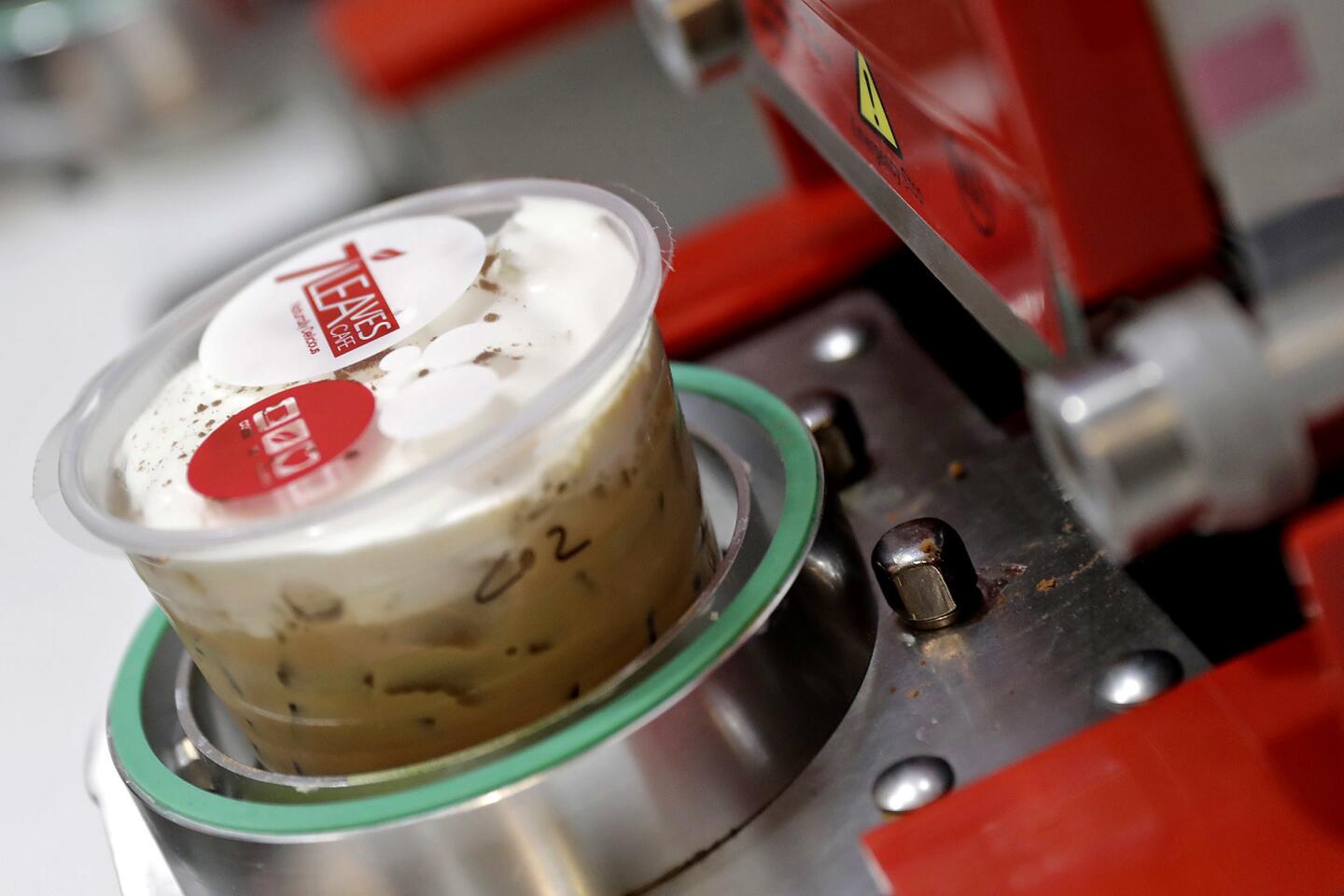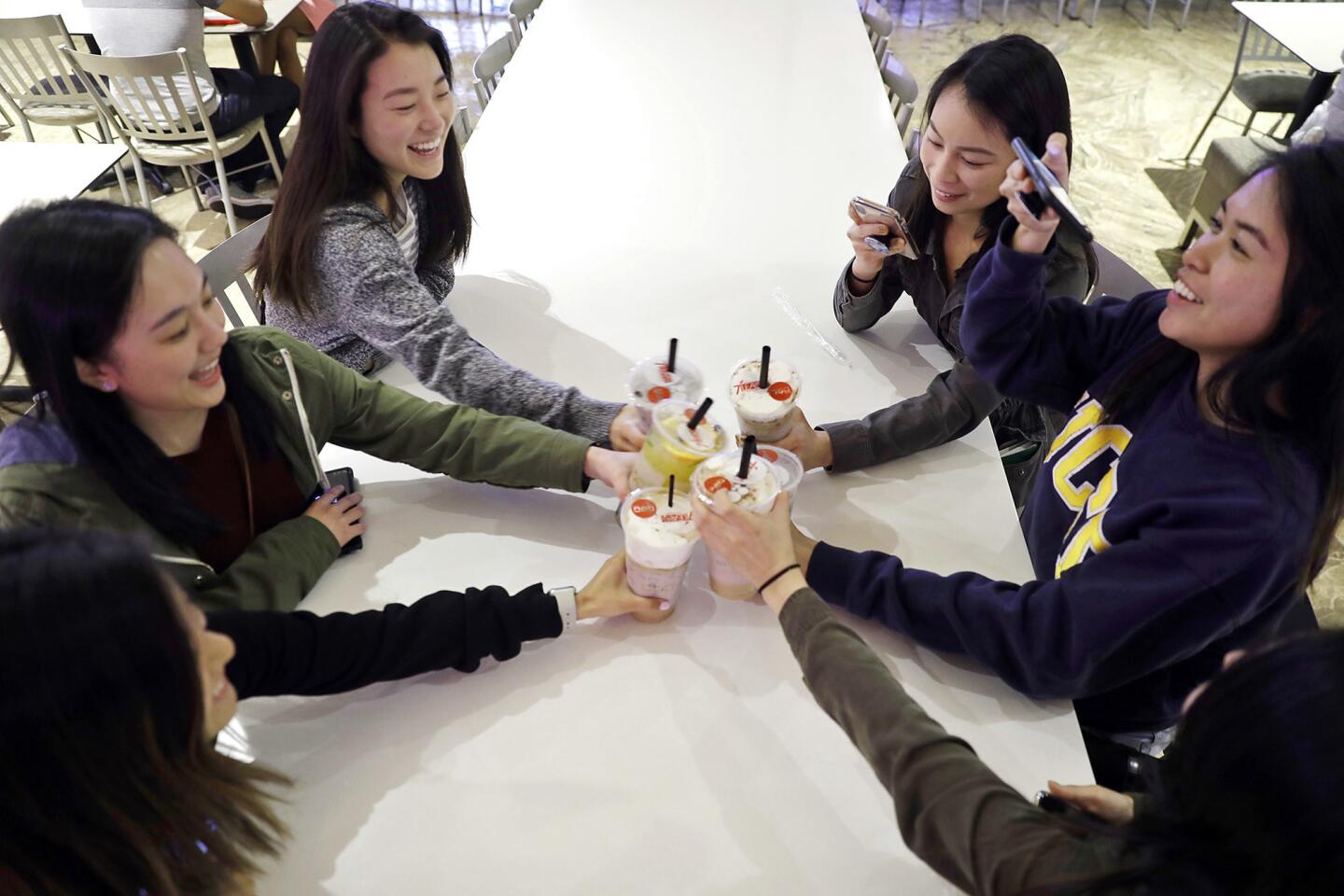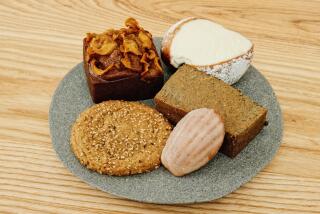The ‘Vietnamese American Starbucks’ unites four brothers whose drive stems from early poverty
When the Nguyen brothers opened their first 7 Leaves coffee shop in 2012, they didn’t dare tell their mother and father. The siblings feared that they would be devastated.
After all, their parents were Vietnamese migrants who fled their war-ravaged homeland in the 1990s and eventually settled in Orange County’s Little Saigon. They’d dreamed that their four boys would grow up to be successful white-collar professionals, not purveyors of creamy jasmine and mung bean tea drinks and aromatic Asian-style iced coffees.
They would never understand why their prized sons — Vinh, 42; Quang, 41; Son, also known as Sonny, 39; and Ha, 38 — would quit their safe middle-class jobs as an IT specialist, a software engineer, a banker and a lawyer, respectively, to chase a risky entrepreneurial dream.
“They have sacrificed so much for our security, and they were so happy their boys were progressing,” said Sonny, who’s slightly more talkative than his soft-spoken, self-described “introvert” siblings. “We couldn’t let them down.”
So the brothers kept it quiet when one of them, Quang, took the lead in opening the inaugural 7 Leaves store, an 1,100-square-foot space in an aging Westminster strip mall. And they hushed up the launching of their second location two years later, next door in Garden Grove.
Not until they set up their fifth store in 2015 did their parents learn about the operation. Chanh Nguyen, their father, recalled seeing the cafe for the first time while workers were still laying down plumbing.
“I was shocked, then thrilled but worried for them at the same time,” he said. “There’s so much competition out there, especially in Orange County. I couldn’t envision their success because none of them had experience in the field.”
Since then, the 7 Leaves chain has grown to 22 locations in California, Nevada and Texas. Locally, its core clientele includes many students from USC, UCLA, Cal State Fullerton and other Southern California schools, who park themselves for hours at the cafes, huddled over their laptops and nursing one of the $4.50 drinks.
Backed by 700 employees, the chain serves more than 1 million drinks a quarter, with its busiest stores in places such as Garden Grove and Santa Clara selling more than 3,000 drinks per day.
With inked deals, the brothers hope to honor their parents’ heritage while also subtly Americanizing it. Their ambition is to create a Vietnamese American version of a certain ubiquitous coffeehouse chain.
“Is Starbucks an influence? Absolutely,” said Sonny Nguyen. “We ask ourselves, ‘What would Starbucks do? And will Starbucks do this or that?’ It’s our compass.”
::
Born in Vietnam when the communist country still was reeling from decades of war, the brothers escaped by boat with their parents in 1983. After running out of gas, then drifting at sea for seven days, they finally were plucked from the ocean by rescuers and taken to Palawan, a refugee settlement in the Philippines. Eventually, the family went to California, constantly moving and trying to scrape by.
For a time, their mother washed dishes. Their father mowed lawns.
Vinh Nguyen, the eldest, remembers that when he was 8, his family squeezed into a converted garage in El Monte, where his parents told him to take care of the younger kids while they went to work. As the years progressed, the brothers always would shadow one another, sharing beds, backpacks, clothes.
“I will never forget us boys sleeping and sharing the same room my whole life until I got married. This is our bond,” Vinh said. “We have our differences, but we respectfully disagree. Those may be the same qualities you need to run a business.”
As each of the brothers finished college — fulfilling one of their parents’ most cherished goals — they stayed close by continuing to live at home. Later, while some of them, like Vinh, were ascending the corporate ladder, Quang, the second eldest, decided to leave his computer job and set off on a soul-searching trek with their mother. His first stop: Thailand.
From an upper-floor hotel room in Bangkok, Quang would watch a middle-aged man make and sell Thai tea and Thai coffee, gathering a following. He used a simple contraption, but every day there were long lines. He poured the drink into a bag and plopped a straw inside, selling each bag for about a dollar.
“The amazing success of an ordinary street vendor really stayed with me,” Quang said. “I thought it was pretty cool that you can earn a livelihood doing something so basic — yet bring people so much joy.”
Quang’s next voyage took him to Vietnam, his first return after decades, spurring a buddy and him to explore district after district, trying to find the best iced coffee in Saigon. He would think to himself: “If we can only bring this coffee to the U.S. — how great would that be?”
In 2011, back home and on impulse, Quang answered an ad looking for a buyer for a restaurant lease in Westminster. “I signed — not knowing what we would do and not daring to tell my parents,” he recalled.
Quang called his then-girlfriend and future wife, Mai Ly, and they began carving out the launch of a cafe with the help of her younger brother, Denny Ly. The Lys became the fifth and sixth partner behind 7 Leaves, along with Triet Ho, the brothers’ buddy since childhood.
Initially, there was no grand plan. And though the first cafe opened in January 2012, with a sign hawking coffee, juice and banh mi, their concept was evolving and they were still testing drinks. The siblings shared a devotion to the centuries-old art of chopping, peeling, cooking, stirring and pressing by hand, extracting flavor from raw ingredients such as fresh pandan leaves, mung bean, taro root and passion fruit.
The name 7 Leaves stems from the seven ingredients used in the chain’s herbal tea. Ha Nguyen, the youngest brother, said he and his siblings experimented for months on the company’s logo. “We always wanted a name that wasn’t too weird,” Ha said, “or too common.”
::
In eager search of boba, Don Hua set out early for the sumptuous Las Vegas Strip hotel, striding past smoke-saturated blackjack tables to claim a spot in line at the still-sleeping food court.
It was a Saturday morning in March, and the grand opening of the first 7 Leaves Cafe on Las Vegas’ splashiest thoroughfare would not launch until the clock struck 10. But already a cluster of college accounting majors and tourists had inched forward inside the gilded Venetian resort, impatient to sample hand-cooked drinks that for many Asian Americans are a form of nostalgia in a cup.
“We’re here because we gotta compare it to the stuff at home,” said Hua, 24, a science graduate student who was raised in Taipei, Taiwan, and is addicted to boba, the Taiwanese tea-based drink spiked with tapioca balls and other chewy toppings. He ordered sea cream jasmine tea and mung bean milk tea brewed in five steps, turning it slightly sweet and earthy.
This year, the brothers and their backers entered the franchise market, sprouting from their Southern California base to saturate Houston, Santa Clara and Las Vegas. The 7 Leaves at the Venetian is the company’s second Vegas location, following the opening earlier this year of a cafe on Spring Mountain Road, the center of Sin City’s Asian enclave. Customers have been carting away strawberry hibiscus and summer mint by bulk orders ever since.
“What they’ve done is created authenticity,” said global restaurant consultant Aaron Allen. “Flavor profiles from other parts of the world are doing quite well in the industry these days,” he added. “It used to be Americans wouldn’t eat authentic Mexican — they wanted Tex-Mex — but now people are looking for cultural experiences that broaden their thinking.”
The brand does not advertise, promoting its activities and openings only via social media. It nabbed space at the Venetian’s Grand Canal Shoppes with little of the “rigorous screening process” required for vendors, said Rene Hjorth, operator of the hotel’s 7 Leaves, along with partner Tom Nguyen, a commercial real estate broker who is no relation to the siblings.
“The word had already gotten out about the drinks, and they already knew the name,” Hjorth added.
Experts say that to build on their achievements, the brothers must stay focused on the model perfected by industry leaders.
“These products have to be craveable to the point where it becomes a habit. Anything that doesn’t have a strong root, that doesn’t last beyond the initial excitement, won’t be around,” said Alex Susskind, professor of food and beverage management at Cornell University’s School of Hotel Administration.
Chanh Nguyen says that, more than entrepreneurial success, what matters most to him is that his sons have sustained — and maybe even enhanced — their bond. He has a policy requiring the four to gather at the family home at 10 a.m. every Sunday. They bring their wives, children and beverages — especially whenever there’s a new flavor to try.
“It makes me happy to see their unity. They are simple boys. They like simple things,” he said. “I treasure how they are always together, and it’s this togetherness that will help them reach the next stage.”
More to Read
Sign up for Essential California
The most important California stories and recommendations in your inbox every morning.
You may occasionally receive promotional content from the Los Angeles Times.
